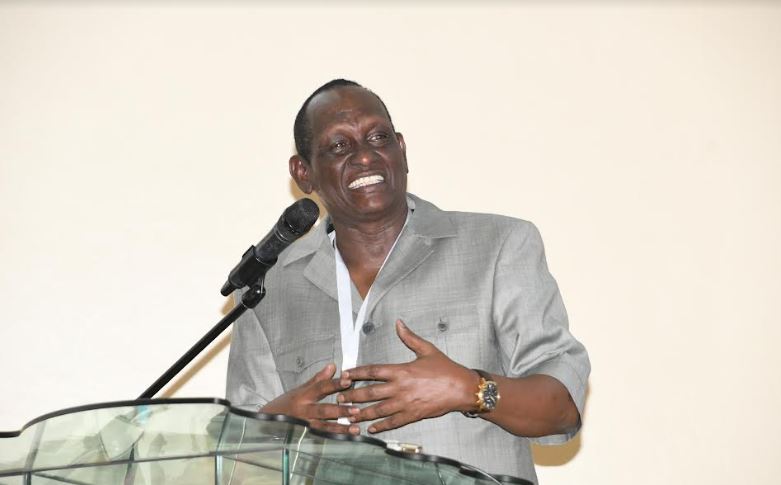The Government has embarked on a project, that targets to assist five thousand (5,000) public learning institutions, including secondary schools, TVETs, and Teachers’ Training Colleges, to switch from the use of firewood to Liquefied Petroleum Gas (LPG).

Currently, the project, dubbed the Enhanced Liquefied Petroleum Gas Uptake Project (ELUP), is being piloted in 20 learning institutions drawn from across the eight regions in the country.
According to the Principal Secretary (PS) of the State Department for Petroleum, Mr. Mohamed Liban, the implementation of the project was on course, and actual work is expected to commence by June this year.
The PS revealed that, in the long run, the project, whose management is being spearheaded by the State Department for Petroleum within the Ministry of Energy and Petroleum, targets to assist all public institutions in switching from the use of firewood for cooking to LPG.
Speaking during a sensitization workshop for stakeholders held at the Kenya School of Government, Kabete, over the weekend, Mr. Liban added that the initiative was part of the grand measures that support forest conservation and climate mitigation efforts.
He said that once operational, ELUP will contribute to helping Kenya increase its LPG consumption from 7.5 kg to 15kg per capita per year, as well as enhance LPG penetration from 24 per cent to 70 per cent by 2028.
Through it, the State Department for Petroleum will support the installation of storage tanks and accessories, civil works and housing cages, retrofitting of cookstoves, provision of seed gas, and training of users in the identified learning institutions.
Participants at the workshop were Heads of Secondary Schools and TVET intuitions and representatives of the Boards from the participating institutions.
The PS also said the initiative also aimed at contributing to the fulfilment of the government’s Bottom-Up Transformation Agenda (BETA) of improving the quality of life of Kenyans.
He said that in addition to learning institutions, the project will later cover other institutions, including Public Hospitals, National Youth Colleges, and Correctional Institutions.
Mr. Liban revealed that ELUP will further support the distribution of LPG cylinders to low-income households, execute and operationalize the importation of LPG through the Open Tender System Framework, develop common-user bulk LPG infrastructure, and develop the policy, legal, and regulatory framework.
The PS said that in low-income households, the project will distribute 6 kg of LPG cylinders, including accessories and initial gas, at subsidised costs, with the benefiting families expected to meet the subsequent cost of re-filling their gas cylinders.
He noted the project aims to reach 4.5 million low-income earners, and the process of identifying the beneficiaries is ongoing, regretting that close to 14,000 deaths in Kenya annually are attributed to indoor air pollution from the use of wood.
The PS said guidelines supporting the installation of LPG in public institutions have also been prepared in line with the Petroleum (LPG) Regulations of 2019 and legal notice No. 100 of 2019.
The guidelines provide for licensing LPG Bulk cylinders and piping. It also covers refills, operations, and maintenance. Other aspects include safety measures, reporting, and inspections.
Participants appreciated the initiative by the government, which they noted will go a long way towards improving operations in learning institutions.
By Viviene Simwa



